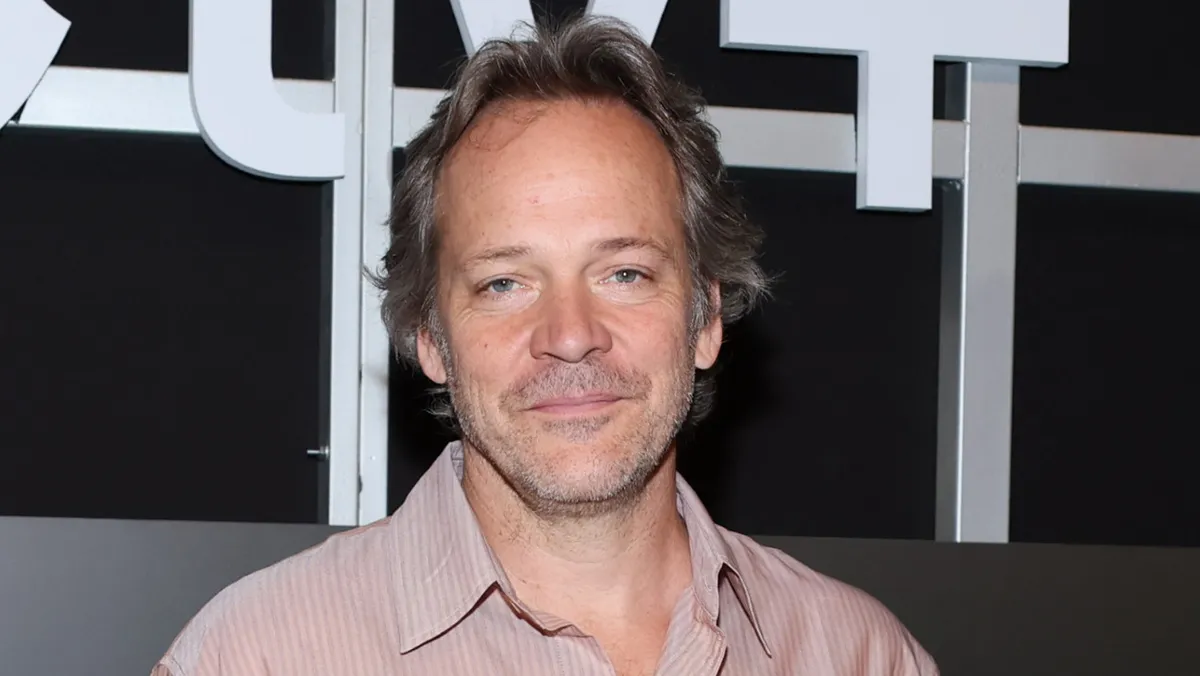
As the world becomes increasingly enveloped in political discourse, the Karlovy Vary International Film Festival (KVIFF) proved to be no exception. The opening ceremony of its 59th edition, held on Friday evening in the scenic Czech Republic, was marked by poignant remarks from honorees Peter Sarsgaard and Vicky Krieps. Both actors took this prestigious platform to address pressing issues concerning the United States’ role in global politics, as well as the themes of division and borders that resonate deeply in today’s society.
The black-tie affair featured Sarsgaard, known for his impressive performances in films like Phantom Thread and Bergman Island, alongside Krieps, who is celebrated for her roles in noteworthy projects. Each actor was honored with the KVIFF President’s Award, a testament to their contributions to cinema. Sarsgaard received a thunderous standing ovation as he took the stage to deliver his acceptance speech.
During his speech, Sarsgaard emphasized the importance of collective action in the film industry, stating, “Making a film is a collective action, and I’m proud of some of the work that I have done, maybe not all of it, but any actor will tell you that good work is only possible in an environment that supports it.” He lamented the current state of affairs in the United States, noting that the nation is retreating from its global responsibilities and is increasingly fragmented by internal divisions related to politics, gender, sexuality, race, and other social issues. Sarsgaard poignantly remarked, “When there’s a common enemy, there is no going it alone,” emphasizing the need for unity against divisive forces.
Sarsgaard concluded his address with a profound quote from former Czech president Václav Havel, a key figure in the fight against communism in Czechoslovakia: “One half of a room cannot remain forever warm, while the other half is cold.” This powerful statement resonated with the audience, encapsulating the collective struggle for equality and understanding in a divided world.
Following Sarsgaard, Krieps took to the stage, echoing similar sentiments about the transformative power of film. “If movies are not misused, they can go across borders and transfer the most powerful messages,” she stated, highlighting the universal nature of storytelling. Her words struck a chord as she reinforced that films do not discriminate based on nationality, wealth, or social status. “They don’t ask for a passport or where you are from or how much money you have, or if you are cool or not,” she asserted.
Krieps further articulated her belief in the ability of cinema to inspire hope and dreams. “I was never cool. I was always not cool,” she confessed, emphasizing that movies create a vital space for imagination and aspiration. Her heartfelt message called for a collective effort to preserve the essence of cinema: “So we should try and save the movies, so they continue to exist and to continue to spread the word of love and peace and, most importantly, forgiveness.”
The opening ceremony of the Karlovy Vary International Film Festival not only celebrated artistic achievements but also served as a reminder of the critical social issues we face today. With powerful speeches from both Sarsgaard and Krieps, the event underscored the vital role of film in bridging divides and fostering a sense of community and understanding across borders. As the festival continues, it will undoubtedly remain a platform for dialogue and reflection on the arts and their impact on society.